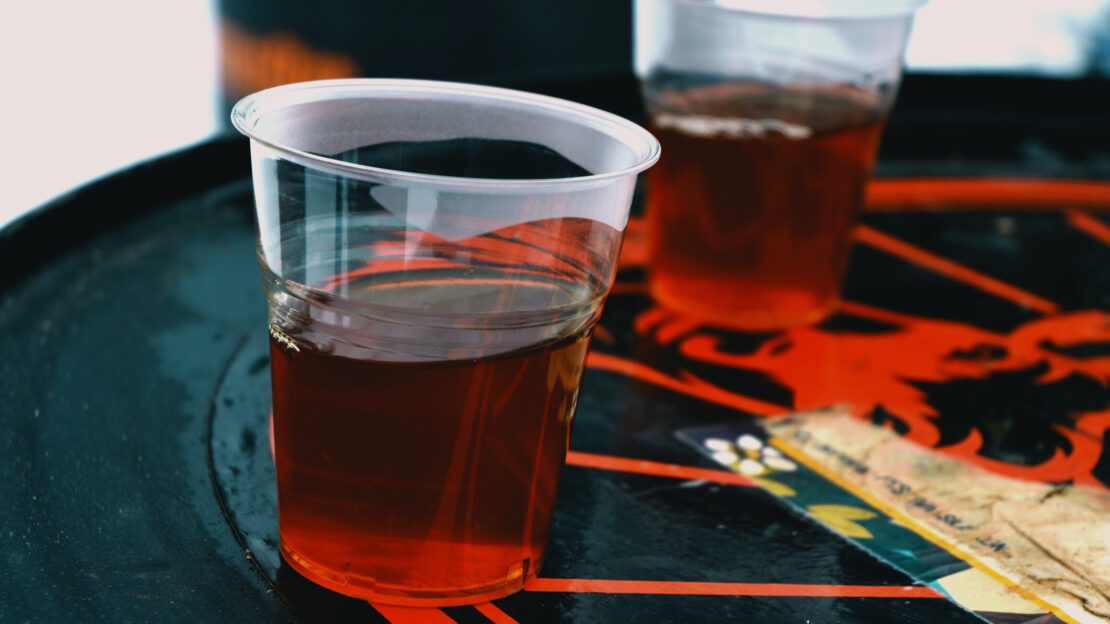The Belgium Government’s meta-analysis of 22 Life Cycle Analysis (LCA) studies shows environmental impact of different cups types
The report, by The Public Waste Agency of Flanders (OVAM), which compared 22 Life Cycle Analysis (LCA) studies has concluded that reusable cups offer the best environmental option, and provides a score for different plastic cup types. It also launched an online tool to help Flemish event organisers to understand and compare choices of cup type. This study aligns with a research consensus that clearly shows ‘bring your own’, PLA and PP reusable cups as the best options, and rPET as the best single use option, providing it is recycled effectively. The study also considered plate types and finds that resubal plates are also the best option. Cardboard plates, commonly used by events as ‘compostable’ do not score well for environmental impact as they are usually incinerated or landfilled.
READ THE ENGLISH LANGUAGE SUMMARY BELOW:
Event organizers in Flanders are eager to make informed choices regarding the type of drink- and tableware to be used for their event (cups, mugs, glasses, plates, bowls and cutlery). This study aims to develop an online tool to assist organisers in creating sustainable and viable choices.
Based on a literature review of life cycle analyses (LCA), environmental scores were assigned to different materials and end-of-life options for drink- and tableware. These environmental scores take into account the total environmental impact, including greenhouse gas emissions, emissions of toxic substances, the depletion of natural resources and land use (deforestation). The entire lifecycle is taken into account: from production, transport and use (e.g. washing dishes) to waste collection and disposal (recycling or incineration).
The following tables show the environmental scores from the most environmentally friendly and viable options for drink- and tableware. The environmental scores were calculated on the basis of an analysis of 22 LCA-studies. Because of differences in the methodologies, environmental scores are not exactly expressed in grams of CO2-emissions but represented approximately as environmental score classes from ‘A’ to ‘E’. A lower environmental score class is roughly equivalent to a doubling of the total environmental impact and greenhouse gas emissions. For example a system with environmental score B has an environmental impact about twice as large as a system with environmental score A.
Next to the environmental aspects, the practical implications of the use of various systems of drink- and tableware are investigated in this study. The feasibility analysis on different types of events is conducted through a market analysis. Dozens of event organisers, local governments, suppliers, catering service providers, distributors and waste processors were interviewed.
The market survey showed that in terms of purchase, enough market players are present for each type of product. The rental market for cups, plates, etc., however, is not yet sufficiently developed in Flanders. The step to buy is still considerable for many organizers. In addition to the financial implications, also the environmental aspects cause a burden. The purchase of reusable drink- and tableware, used only once or a few times a year, has a high environmental impact per consumption. It is therefore recommendable for organizers to work more closely together (via for example group purchases, mutual lending). Local governments who already provide material are recommended to increase their communication in order to attract more event organisers.
In terms of feasibility, the different events using reusable drink- and tableware demonstrate that their choice herein must be accompanied by a thoughtful organization and communication. A correct determination of the deposit, briefing of the catering staff and hygienic conditions for rinsing are crucial. Also communication with the public before and during the event is important. Transition costs and startup problems should be avoided as much as possible in order to give a fair chance to environmentally friendly reusable drink- and tableware.
As a final step in this study, the insights of the market survey and the literature review were processed in an online module for event organizers. Organizers can use this online tool to choose the most environmentally friendly and viable types of drink- and tableware, for each type of event. In addition, the module provides for each selected system practical tips. Organizers will get answers to, amongst others, the following issues:
-
What is the most sustainable use per type of drink- and tableware?
-
What is the most viable and sustainable option for the final phase (reuse, recycling, waste incineration)?
-
Are biodegradable disposables actually compostable?
-
How do you organize the collection systems, what are the pros and cons and what are the preconditions?
-
How many reusable cups should you provide for your event, and how much space will this stock take at the event site? How can you save costs if you choose the most environmentally friendly option?
DOWNLOAD THE REPORT (IN FLEMISH ONLY)
EXPLORE THE TOPIC FURTHER:
-
Drastic on Plastic – Plastic Free Festivals Resources Pack for Festival Organisers in Association with RAW Foundation.
-
Standout Green Column article on event cups.


